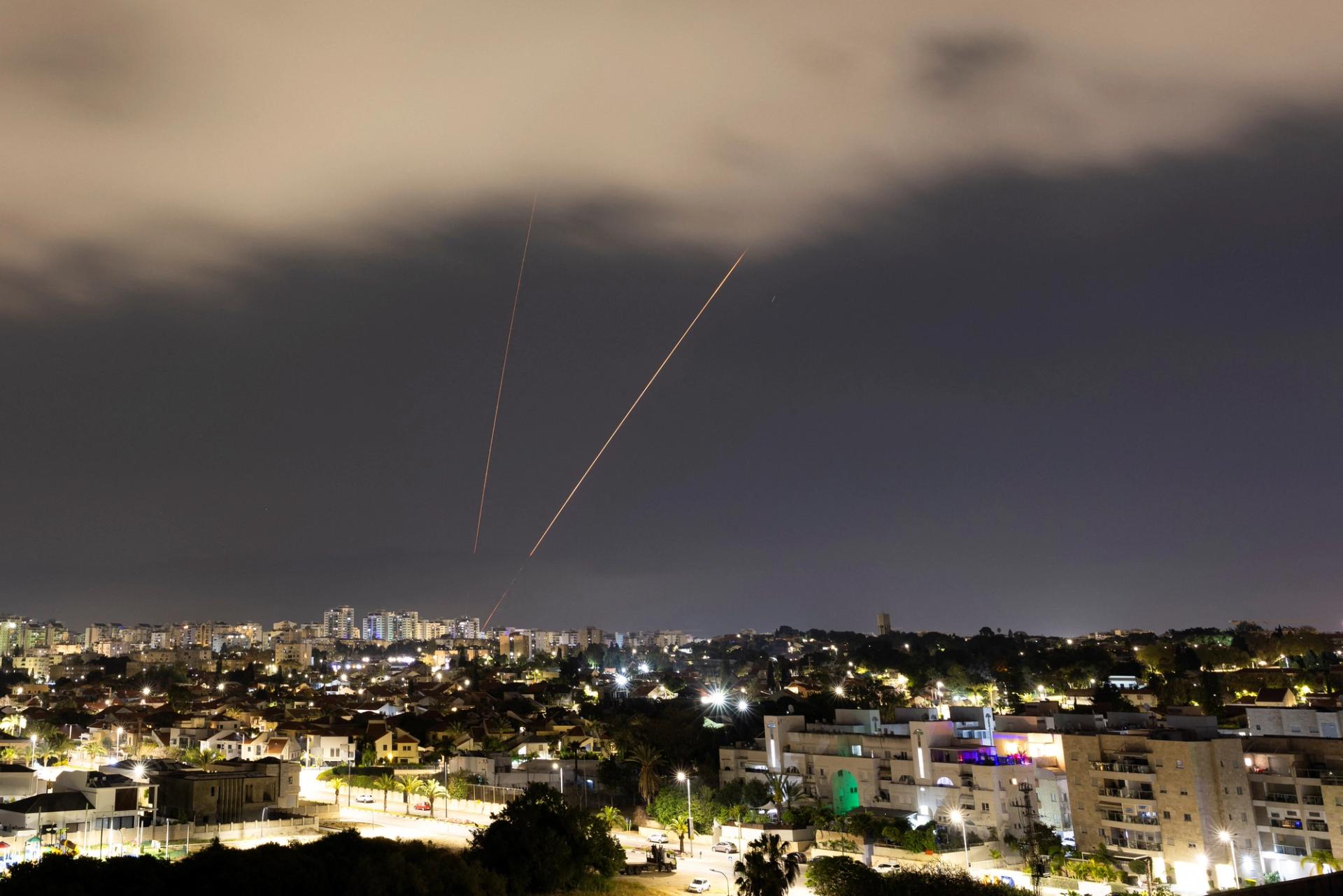Semafor Signals
Supported by
Israel urges Iran sanctions as it calibrates response to attack
Insights from Chatham House, The Washington Post, and the Financial Times

The News
Israel urged nations to impose sanctions on Iran’s missile project after Tehran launched a retaliatory attack against its territory over the weekend.
Israel has promised a “significant” response to the aerial assault, which came after deadly strikes in Syria on Iranian personnel, including a top commander.
Israel largely intercepted the Iranian strikes on Saturday but the events have triggered fears of a widespread regional conflict in the Middle East with Western nations urging Israel to respond with restraint.
SIGNALS
Iran’s attack was strategic and successful, analysts say
Tehran’s direct attack on Israel was largely averted by Israel’s extensive defense systems, leading many to declare it an unsuccessful strike. But Iran may have been aiming to do more than just strike Israeli targets, analysts at Chatham House argued. Iran made its intention to strike Israel known, eliminating the element of surprise, Sanam Vakil and Bilal Saab, of the think tank’s Middle East and North Africa program, wrote. If Iran’s goals were to cause serious harm to Israel, it would have given “Israel very little time to prepare and respond.” Iran’s intentions were more likely strategic, and aimed “to bolster Iranian deterrence and attempt to rewrite the rules of engagement with Israel.” From that perspective, “Iran’s attack was largely successful,” they noted.
Jordan’s intervention means nation faces ‘balancing act’
Jordan, which has criticized Israel’s war in Gaza extensively, shot down several Iranian rockets as Tehran carried out its attack. Amman has said it was necessary to intervene to ensure the safety of its own citizens, the Financial Times reported — but the move has placed the nation into a delicate “balancing act” in a region with already-risky dynamics. Jordan’s decision may mean it is “taking a risk if things escalate,” Marwan Muasher, Jordan’s deputy prime minister, told the FT. But he argued the move wasn’t pro-Israel: “It was a way to prevent an escalation. Nobody would benefit, especially Jordan, from an escalation of hostilities beyond Gaza.”
Israel plans to respond, but faces questions on how to avoid escalation
Israel has so far rejected calls by the U.S. and other allies to avoid retaliation for Iran’s strikes. But how the nation responds will shape how the conflict progresses. “We want to contain it. But we cannot let it pass,” one senior Israeli official told The Washington Post’s David Ignatius. Israel is now facing a major test of deterrence, Ignatius wrote: “How can a country demonstrate its willingness to use force … without creating precisely the crisis it seeks to avert?” While Israel has deterred some conflicts in this way, “it has arguably created some others.”
